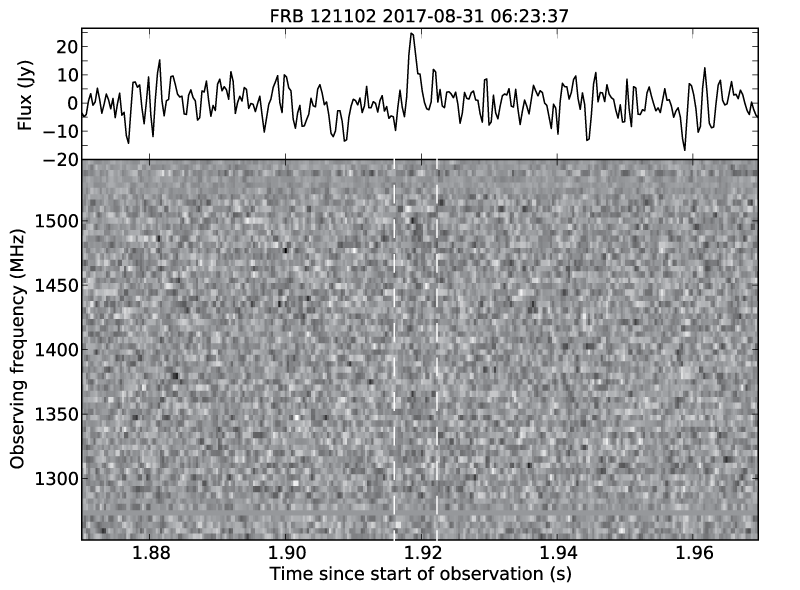





We observed the repeater FRB 121102 (Spitler et al. 2016) while commissioning the Apertif Radio Transient System (ARTS; van Leeuwen 2014) on Westerbork. Starting at UTC 2017-08-31 06:23, we recorded 300 MHz of bandwidth from the central set of dipoles in the Apertif phased array feeds, from a single dish. The observation was the first with ARTS toward this source and lasted for 2 hours.
Data were coherently dedispersed at the known DM of 557 pc/cc, and channelised. These filterbank data were next searched offline for radio bursts, both in time and over a limited dispersion-measure range. At barycentric MJD 57996.2656372 ARTS detected a bright FRB, its first, of fluence 35 +- 10 Jy ms, peak flux 24 +- 7 Jy, and a FWHM of 1.3 +- 0.2 ms, at optimized DM of 555 pc/cc. No further bursts were discovered in the observing session.

Following the detection of multiple bright pulses from FRB 121102 at higher frequencies with the Green Bank Telescope (ATel #10675) on 26 August, this detection indicates the FRB source may be in a phase of outburst.
To start estimation of the false-positive rate, we pointed with the same setup off-source for 2 hours. Our pipeline reported ~25 candidates at the same S/N ratio as the aforementioned burst, or higher. Visual inspection showed all of these to be either RFI, or not persistent after varying the time and/or frequency sampling, in constrast to the burst above. In 10 further hours of on-source follow-up, the same approach also did not detect any convincing events.